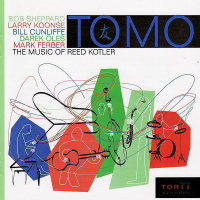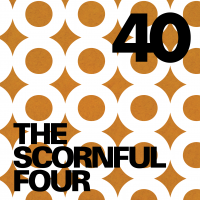Home » Jazz Articles » Interview » Don Friedman
Don Friedman
...you're always thinking what can I do next? And how can I play better, how can I improve, how can I be more creative?
All About Jazz: Why did you move to New York from the West Coast?
Don Friedman: I realized...that the greatest jazz music, the greatest players, when they would come out to California to play, they were all from New York. So I wanted to be here too. I actually met a lot of musicians at that time by playing in New York...so I felt when I came back here I would know some people and that's exactly what happened.
Within a couple of years I started recording for Riverside. It didn't really take that much time when you think of now, how it takes forever these days to get a record (deal) for young people. I started working practically as soon as I got here doing gigs. I was friends with (bassist) Chuck Israels and (drummer) Joe Hunt; both were on my first record. Joe Hunt had done a record for Orrin Keepnews with George Russell (Ezz-thetics, 1961), and Joe Hunt knew Orrin. Joe and I and Chuck used to get together and play. He suggested to Orrin maybe recording me and Orrin was looking for someone who had a lot of original music. And it just so happened I was studying composition at that time and had written a piano piece with a lot of variations based on a folk song. I adapted that for a trio, turned it into a jazz thing and that was the first record date (A Day in the City, 1961).
I did two records with Booker Little. I was in John Handy's band for a while; he had a quartet. I played with Jimmy Giuffre for a while. I was with Herbie Mann.
AAJ: Was that how you met Attila Zoller?
DF: I met Attila before I was with Herbie but Attila helped me get the gig. He told me that Herbie was looking for a pianist. He was working with Herbie at the time and they were at Birdland and I was playing around the corner at a small place called Junior's, a musician's hangout, and I was there with a bassist just playing duo. And so Attila, on his break, came over to Junior's and said "hey, you should come over to Birdland, Herbie's looking for a pianist and we're going on this Japanese tour" So I took a break and went over there and I sat in with Herbie and he gave me the gig. Right after that I was in his band and we went to Japan and we did a tour of the United States and then he used to work a lot at the Village Gate.
AAJ: You never recorded with guitarists other than Zoller.
DF: Attila and I had a sort of a chemistry as people. We really loved each other basically as human beings; we really cared for each other. And besides that we had musical chemistry also. We could really hear each other's music. We were with Herbie and we would play together and we wrote stuff together. We had a special kind of thing. I never had that before -it didn't matter what instrument he played. Our personalities and our musicalities, they fit like a glove. And it was just easy for us and natural for us to be with each other as friends.
AAJ: Are personal relationships with those you play with important to you?
DF: It's very important, sure. How you feel about the person, it affects how you play. When you're together you can talk about music, it all helps. If you feel you can't reach another person, it's very hard to make music with a person if you don't feel a certain bond.
AAJ: You have a strong bond with Clark Terry.
DF: Clark is also a very special kind of person. I've played with him now for 40 years, off and on. In the last 10 years or so I've been what you would call a regular member of his group, whenever he works with this quintet. It's not the same kind of a thing as I had with Attila. We're not always in contact with each other. Clark does a lot of stuff that doesn't involve me. But when we are together on the gig... The other thing that's different is that we don't ever really talk about music or talk about how to play or what to play. With him, it's all intuitive and he's just such a strong leader and all you have to do is listen and he just dictates what's going to happen. He doesn't have to tell you what he's going to play, he just starts. I've played with him so long I just know what he's going to do. And I can anticipate what's going to happen so there's this intuition between the two of us.
AAJ: What do you look for in a rhythm section?
DF: The kind of music that I would like to play right now, is to have a group that is also -the word intuition keeps coming up -you have to have this kind of intuitive understanding between the three players. When it's a piano trio, obviously the piano is the lead instrument and then the bassist and the drummer, they're accompanying you but at the same time you want to be able to feed off of them. You're feeding them and feeding off of them at the same time. They have to hear what you're playing and at the same time, you have to hear what they're playing. Because you can inspire each other. And that's what I'm looking for and I'm also looking for a way of playing where there's a lot of interaction. That's another important aspect to a rhythm section, there's not just "dum-ding-da-ding-dum-da-ding" all the time. Some groups they play, they never vary from that, you hear the same constant beat all the time. I like to play around with the times, with the rhythms, not the meters necessarily. There's so much you can do and [drummer] Tony [Jefferson] is fantastic at changing the feel of the rhythm without changing the rhythm and [bassist] Martin [Wind], we do a lot of where we don't play four all the time. And they interact, feed off of each other, and it's just this triangle of people making music together and all tuning in to each other.
AAJ: You've really gotten into doing standards.
DF: Standards for me, it's almost like, when you do original material, it's stuff that you haven't played for a long time, because it's new stuff. So the most comfortable way to play music is to play music that you've played for a long time. When I play a standard tune like "All the Things You Are," I don't have to think anymore about what's going to happen in the tune, it's just like a part of me and I can play off the tune and do whatever I want. It's something that comes from inside me but if I'm playing new material, whether it's an original or something that I haven't played before, I have to think of what's coming next, what chord is this. You have to start thinking so you're dividing your attention between your creative process and the basic thing of knowing where you are and what's coming next.
AAJ: In your long career, what is your fondest musical experience?
DF: I kind of feel that my fondest musical experience is always the most recent one. The thing that I did last night stands out in my mind. The last time I was at the Kitano and I was with the same group that I'm playing with now, we played a tune called "Never Let Me Go" that we play a lot and we got into some stuff there, I wish it had been recorded, because it was one of the best solos that I ever played. I got into stuff, I don't even know how I did it or what happened, I didn't know what I was doing in a way. I'll never forget it. I'm not the kind of a person who looks back too much. I'm aware of all the things that I've done but I don't focus on that. I think about what I want to do still. There's so much. Music is such a fantastic thing, you can never do everything so you're always thinking what can I do next? And how can I play better, how can I improve, how can I be more creative?
Recommended Listening:
· Don Friedman -A Day in the City (Riverside-OJC, 1961)
· Booker Little -Out Front (Candid, 1961)
· Charles Lloyd -Discovery (Columbia, 1964)
· Don Friedman -Metamorphosis (Prestige-OJC, 1966)
· Don Friedman -Live at Maybeck, Vol.33 (Concord, 1993)
· Don Friedman -My Favorite Things, Then and Now (441 Records, 2003)
Tags
PREVIOUS / NEXT
Support All About Jazz
 All About Jazz has been a pillar of jazz since 1995, championing it as an art form and, more importantly, supporting the musicians who make it. Our enduring commitment has made "AAJ" one of the most culturally important websites of its kind, read by hundreds of thousands of fans, musicians and industry figures every month.
All About Jazz has been a pillar of jazz since 1995, championing it as an art form and, more importantly, supporting the musicians who make it. Our enduring commitment has made "AAJ" one of the most culturally important websites of its kind, read by hundreds of thousands of fans, musicians and industry figures every month.


























